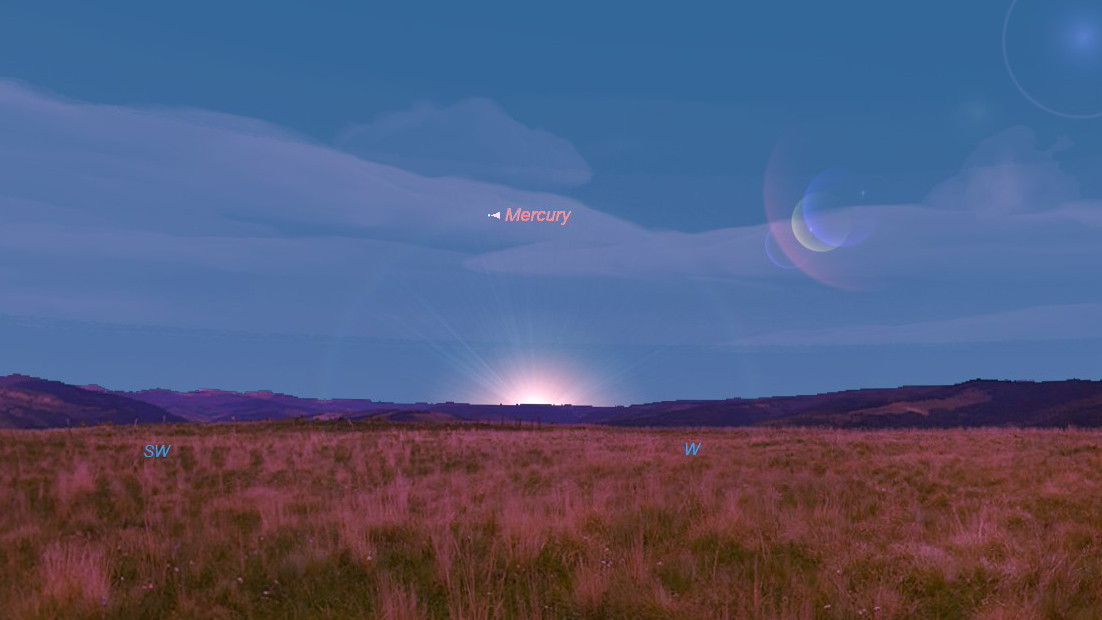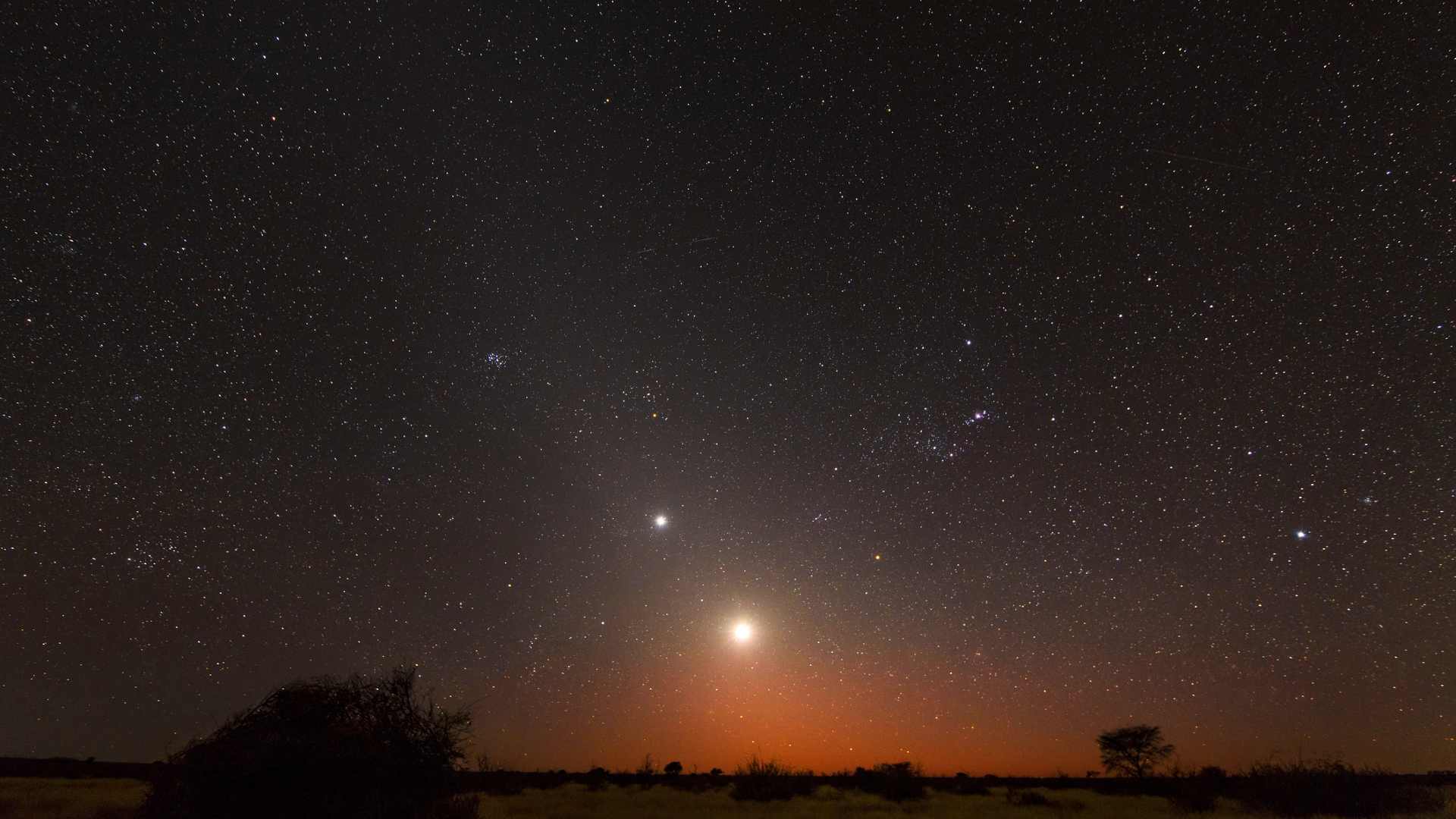Spot the 'Elusive' Planet Mercury at Its Best Tonight

Breaking space news, the latest updates on rocket launches, skywatching events and more!
You are now subscribed
Your newsletter sign-up was successful
Want to add more newsletters?

Delivered daily
Daily Newsletter
Breaking space news, the latest updates on rocket launches, skywatching events and more!

Once a month
Watch This Space
Sign up to our monthly entertainment newsletter to keep up with all our coverage of the latest sci-fi and space movies, tv shows, games and books.

Once a week
Night Sky This Week
Discover this week's must-see night sky events, moon phases, and stunning astrophotos. Sign up for our skywatching newsletter and explore the universe with us!

Twice a month
Strange New Words
Space.com's Sci-Fi Reader's Club. Read a sci-fi short story every month and join a virtual community of fellow science fiction fans!
The innermost planet Mercury tends to be pretty hard to see, because it's so close to the sun. But today (Feb. 26), the planet will be at its farthest point from the sun, making it easier to spot as it escapes the star's blinding glare.
In the Northern Hemisphere, skywatchers should look for Mercury just around sunset (while being careful to never, never look directly at the sun). At dusk, Mercury will be almost directly above the sun. But you'll have to look quickly, because Mercury will set along with the sun at nightfall.
Mercury will be only about 10 degrees above the horizon at sunset, according to NASA. To put that into perspective, 10 degrees is about the width of your fist held at arm's length. Space.com's skywatching columnist Joe Rao says the planet will be really easy to see, because with Mercury's visual magnitude of -0.4, there will be nothing else nearby (planets or stars) that's anywhere near as bright.
Related: When, Where and How to See the Planets in the 2019 Night Sky
You can pull out binoculars or a telescope to look at Mercury, but you won't see much detail unless you're using professional-grade equipment. The planet will still look like a bright spot in the sky. Because Mercury is so small, details on its surface are too tiny to resolve. However, skilled observers may be able to make out that Mercury is at dichotomy, or half phase.
Even if you miss Mercury's brightest date, you'll still have a chance to catch it over the eight following days. But with each day, the planet will fade quickly. After eight days, it will be dimmer by two full magnitudes and will be about as bright as the North Star (Polaris).
Mercury isn't the only planet visible in the night sky this month. This article by Rao will tell you what other planets in the solar system you can see this month.
Breaking space news, the latest updates on rocket launches, skywatching events and more!
- Elusive Planet Mercury Is Not So Elusive in the Sky This Month
- 10 Strange Facts About Mercury (A Photo Tour)
- Inside Planet Mercury (Infographic) list
Follow us on Twitter @Spacedotcom and on Facebook.

Elizabeth Howell (she/her), Ph.D., was a staff writer in the spaceflight channel between 2022 and 2024 specializing in Canadian space news. She was contributing writer for Space.com for 10 years from 2012 to 2024. Elizabeth's reporting includes multiple exclusives with the White House, leading world coverage about a lost-and-found space tomato on the International Space Station, witnessing five human spaceflight launches on two continents, flying parabolic, working inside a spacesuit, and participating in a simulated Mars mission. Her latest book, "Why Am I Taller?" (ECW Press, 2022) is co-written with astronaut Dave Williams.
